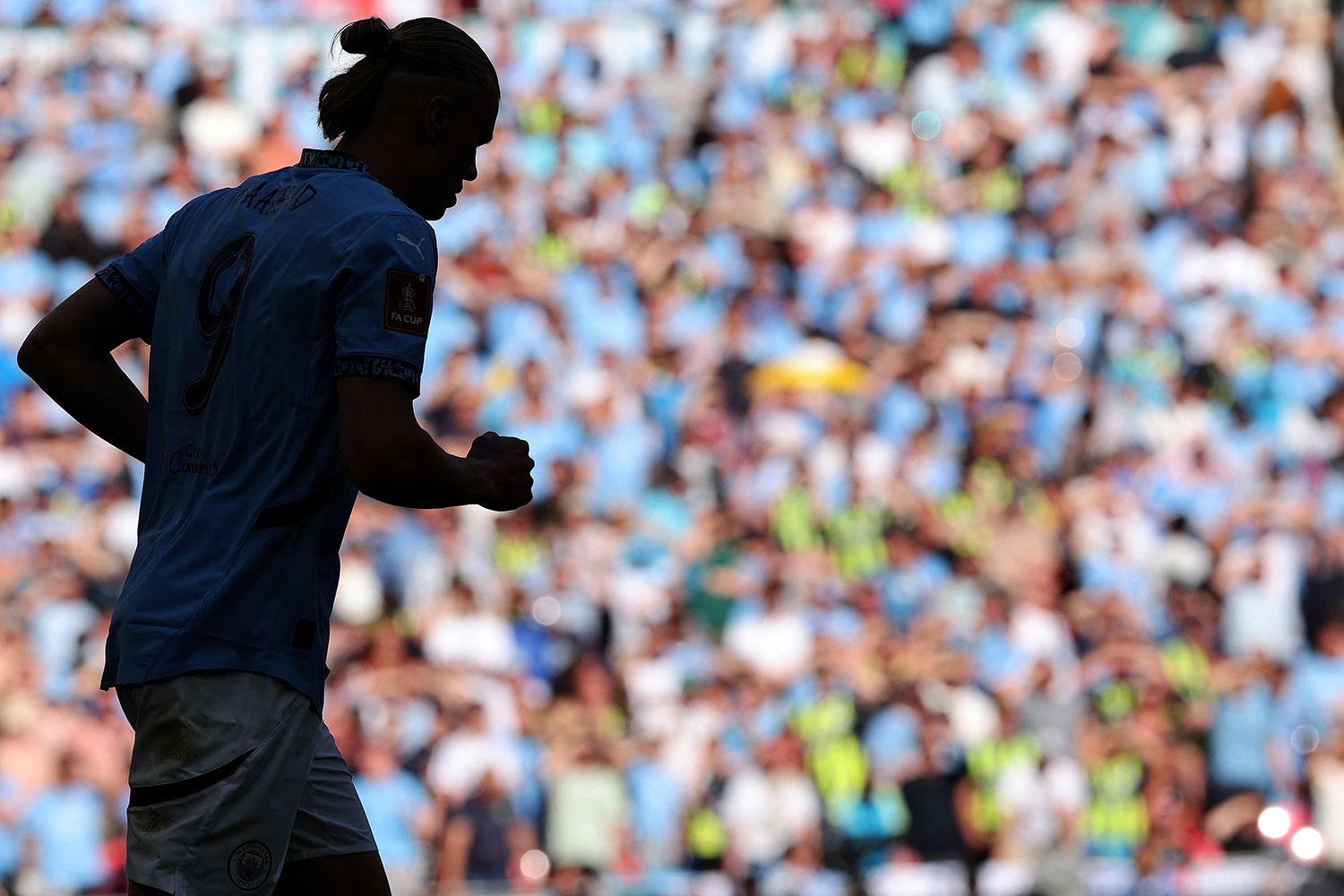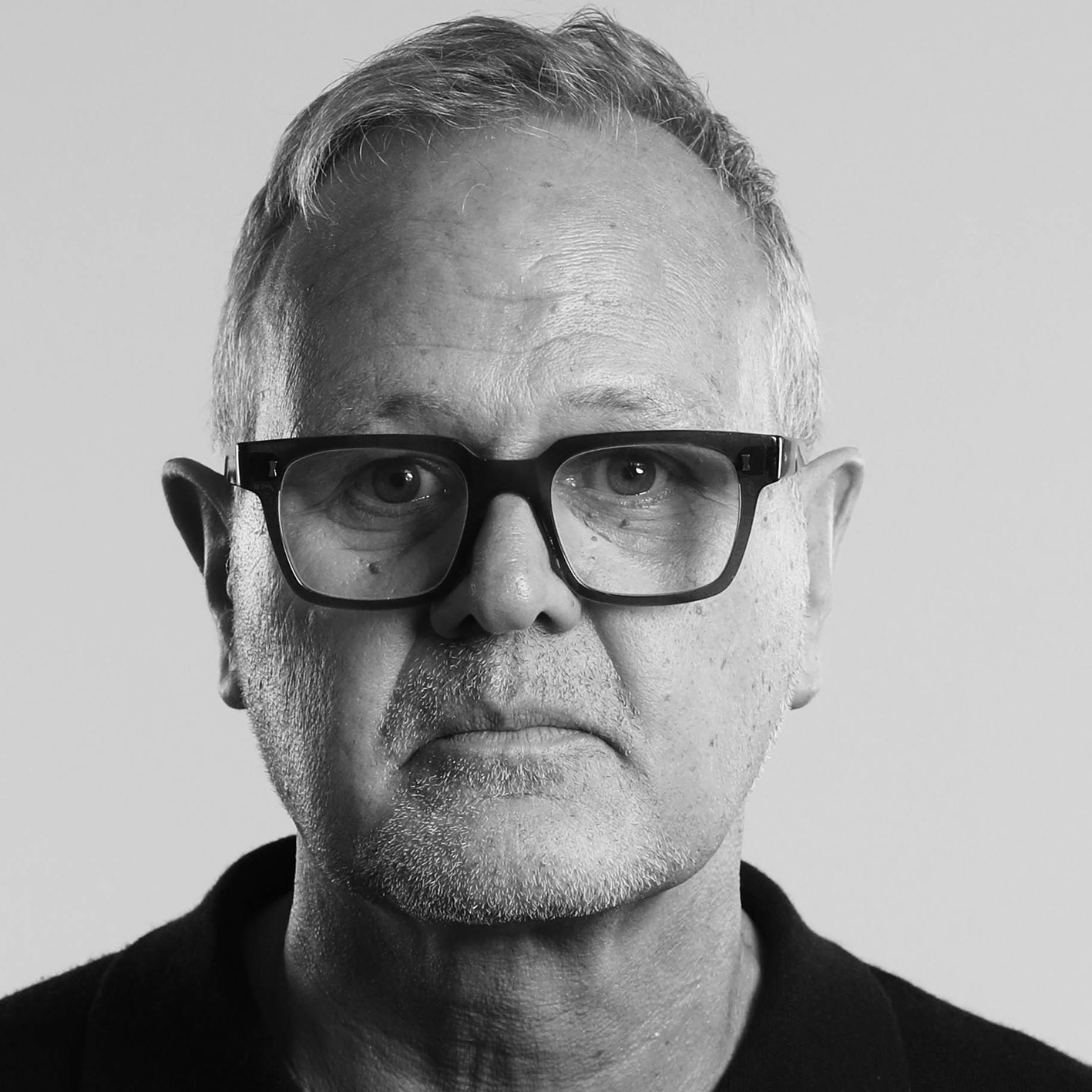This FA Cup final lifted Eberechi Eze into the pantheon of Wembley goalscorers and taught Erling Haaland a lesson about not passing up opportunities.
Crystal Palace’s Eze left the stadium as the man who ended his club’s near 120-year wait for a major trophy. Haaland, the bigger name, who bears a much greater weight of expectation, might have finally scored his first Wembley goal when Manchester City were awarded a penalty, but seemed to lose his nerve. He passed the ball to Omar Marmoush, whose kick was saved by Dean Henderson.
Like the red telephone box or the Routemaster bus, the FA Cup’s climax just about clings on as an English tradition fighting off change. And down on that pitch, after the sensory overload of a build-up that splits the ears and spins the brain, individual players try to make themselves synonymous with an event that bestows eternal lustre.
Two forwards came into this final desperate to score for contrasting private reasons. Haaland turned out to be not quite as desperate as we thought.
Eze was on a hot run of FA Cup form with three goals and an assist in four ties. Before that he had failed to score in any of his previous 14 FA Cup appearances. He was a classic FA Cup ‘bolter,’ with a story to tell of rejection and dead ends early in his career. His is the type of tale for which the FA Cup was invented. And he needed only 15 minutes to extend that sequence with a clever finish from a Daniel Munoz cross.
‘Haaland might have scored his first Wembley final goal, but seemed to lose his nerve’
‘Haaland might have scored his first Wembley final goal, but seemed to lose his nerve’
In the opposite corner stood a hulking global household name who might have been built in a Hollywood props lab to wreak havoc on English defences. Haaland has been City’s hellhound, tossing defenders aside as he rampages past Premier League centre-backs. He cost £51m and would go for £100m-plus to anyone now wanting to sign him.
Eze’s many false starts placed him in the bargain bucket of footballers before his career took off at Queens Park Rangers and Palace. His FA Cup final goal carried the added value of giving Palace something big to boast about.
Haaland arrived here with a lousy record in finals. There is such a thing as a specialist Wembley striker – but Haaland isn’t among them. Guardiola was asked why his brilliant finisher had declined the chance to take City’s penalty. “They [Haaland and Marmoush] decided on the pitch,” he said.
Chelsea’s Didier Drogba scored in four finals here and Ian Rush amassed a record five in three. Haaland had played in two FA Cup finals and two semis – plus two Community Shields. His last goal in any final anywhere was in the 2021 DFB-Pokal in Germany for Borussia Dortmund.
Stalking a player with that kind of anomaly on his CV is firstly personal frustration and secondly whispered criticism about the talisman’s failure to swing the biggest games. Fair or not, it sticks to the player who’s paid the big bucks to be the match-winner.
Newsletters
Choose the newsletters you want to receive
View more
For information about how The Observer protects your data, read our Privacy Policy
If Haaland was constructed for success in all contexts, Eze is the 26-year-old London lad who was discarded and turned down multiple times in his own personal Grand National to reach the top.
He was culled by Arsenal, released by Fulham and Reading, told ‘no thanks’ by Bristol City and Sunderland after trials and pushed away by Millwall. Despondency forces most young footballers with that kind of history into other jobs. It breaks their spirit.
It certainly hurt Eze, who told the BBC this week: “I remember facing Arsenal a few months after being released by them [at 13] and welling up because of all the emotions. I didn’t know how to process it.” Better times at QPR led to a £17m move to Crystal Palace and acclaim for his inventive attacking play as well as 10 England caps (so far). The Premier League can build its staircases of money and power for young talent to ascend. But FA Cup finals are a more grounded, one-off chance to make a name for yourself.
A club who never win anything against one who often win everything turned out to be a pleasing plot. It pitted eternal hope against infinite wealth. Mid-table clubs need every encouragement that the gap between them and the habitual trophy winners is bridgeable. Palace’s win will give them hope that good recruitment and coaching can be effective weapons against City and the rest.
When Eze dribbled the ball out of a dangerous scenario for his team in added time you could see the drive (and perhaps desperation) all those setbacks instilled in him. Perhaps they were the making of him: those, and the vision in his head and feet.
By then Palace were in a hellish siege of Man City pressure that somehow gave way to the kind of euphoria only supporters of clubs with no previous major trophy win to their name can know.
Eze got his goal. Haaland didn’t. This was the FA Cup final as you hope it will be: a spreading of recognition and reward.
Photograph by Adrian Dennis/Getty Images

